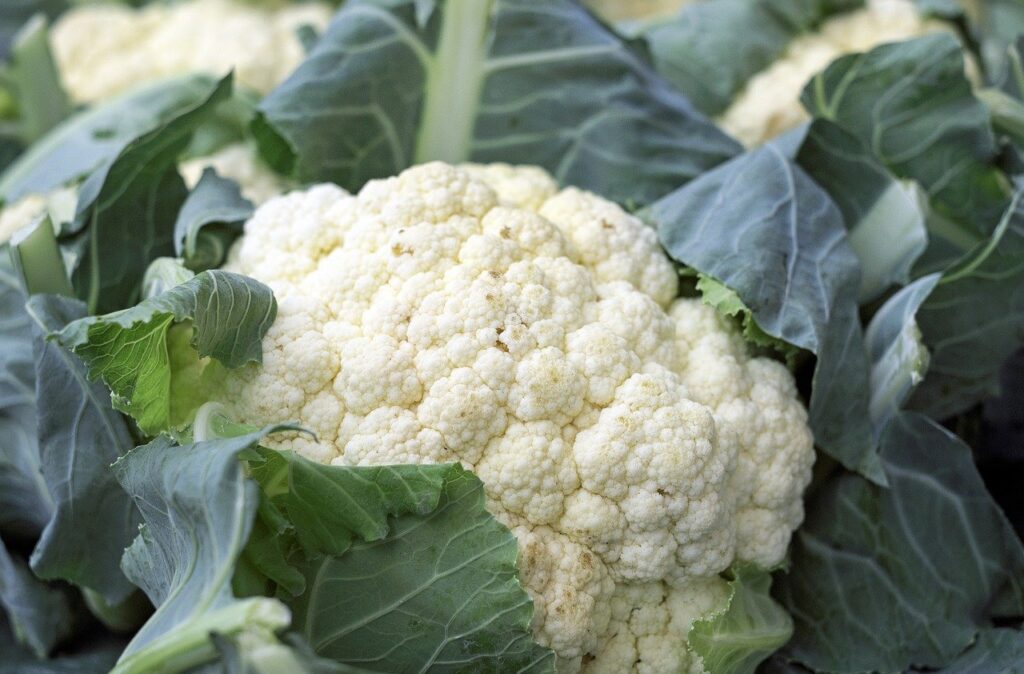
Cauliflower is a vegetable packed with nutrients. It is low in calories–only 25 calories for a one-cup serving, and it has 3 grams of fiber. Fiber is important in our diets to maintain digestive health, and cauliflower serves to keep your gut filled with the right kind of bacteria. This helps prevent constipation, Irritable Bowel Syndrome and diverticulitis. It also contains 77% of the recommended daily intake of Vitamin C. Plus, it is loaded with Vitamin B6, Potassium, and Folate, too. Besides being rich in Vitamin C, cauliflower has an abundance of antioxidants, as do all cruciferous vegetables. The antioxidants in cauliflower are helpful for reducing inflammation and preventing several forms of cancer.
Variety is the Spice of Life
One of the natural benefits of this fabulous vegetable is that it is 92% water. Foods with a high-water content have the added benefit of making us feel full. This makes cauliflower a good food for weight loss. Since it can be used as a flour or rice substitute, it’s a versatile vegetable. Cauliflower pizza crust is readily available in most grocery stores, and you will find a variety of recipes using cauliflower in place of grains. This vegetable allows for a lot of creativity—think of cauliflower rice, mashed cauliflower (instead of potatoes), even cauliflower tortillas. It can even be used in baking and is found in most specialty grocery stores.
The reviews of using cauliflower flour are mixed. The texture of baked goods reportedly comes out well. Unfortunately, in mild-flavored items, so does the taste of cauliflower. his flour seemed to work best in zucchini bread or a chocolate cake, according to this article in Real Simple. While it is technically possible to make cauliflower flour yourself, it involves a food processor, baking in your oven, and straining it through cheesecloth. It seems very labor-intensive.
Is There a Downside?
With all of these benefits, can there possibly be a downside to cauliflower? Yes. For an interesting read, take a look at Lauren Seib’s article for Food Network on her experience of eating cauliflower for one week. She makes the important point that just because a store-bought purchase has cauliflower in it, that food may also be loaded with carbohydrates or preservatives. Don’t fall victim to the hype around this food—be sure to read labels and avoid problematic ingredients. Seib also, mentions the need to drink lots of water when consuming cauliflower regularly, to help with digestion, because it can cause bloating and gas.
At around $1 per pound, cauliflower is an economical food and can be served in a variety of ways. It’s easy to find many different kinds of recipes for preparing cauliflower because it is such a convenient and versatile food. With the health benefits, it’s easy to see it should occupy a place in our diets. Just be sure to avoid the processed foods that advertise cauliflower and stick to recipes you can make at home.






